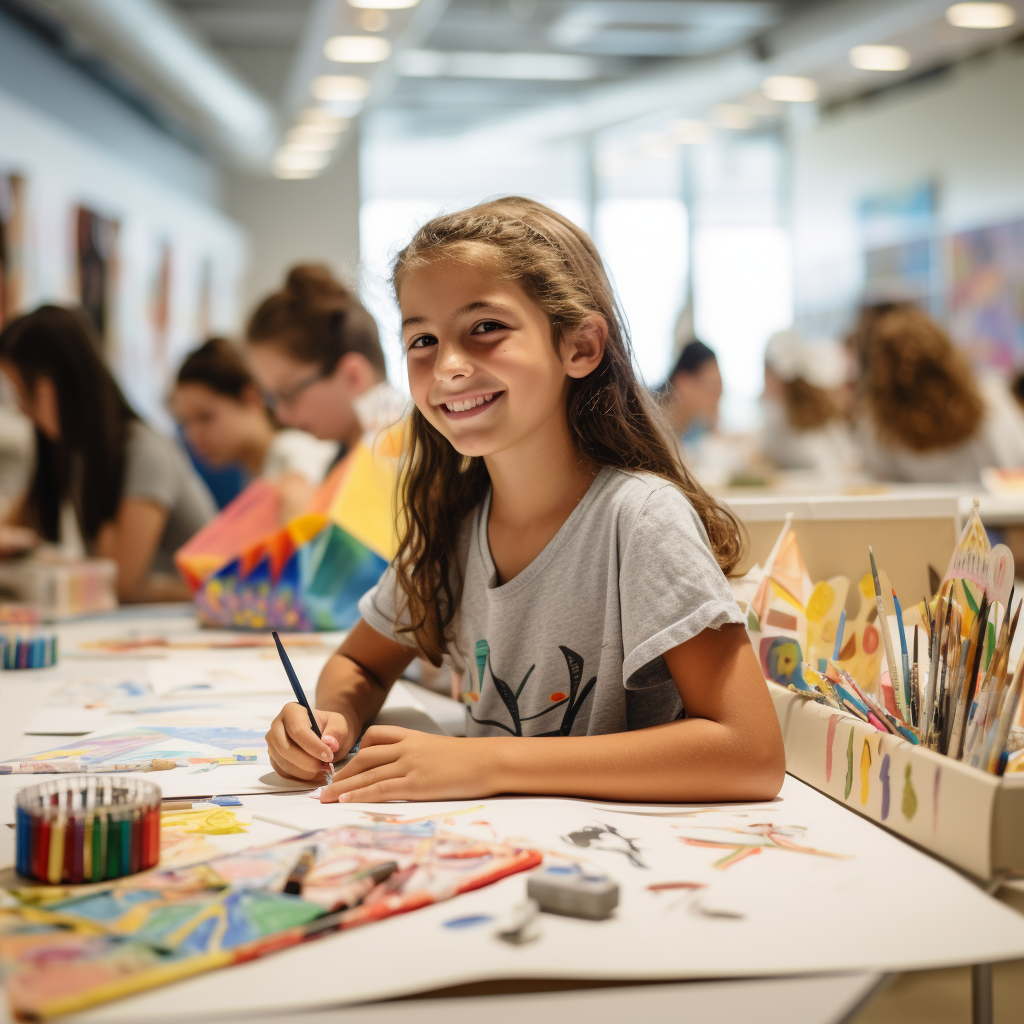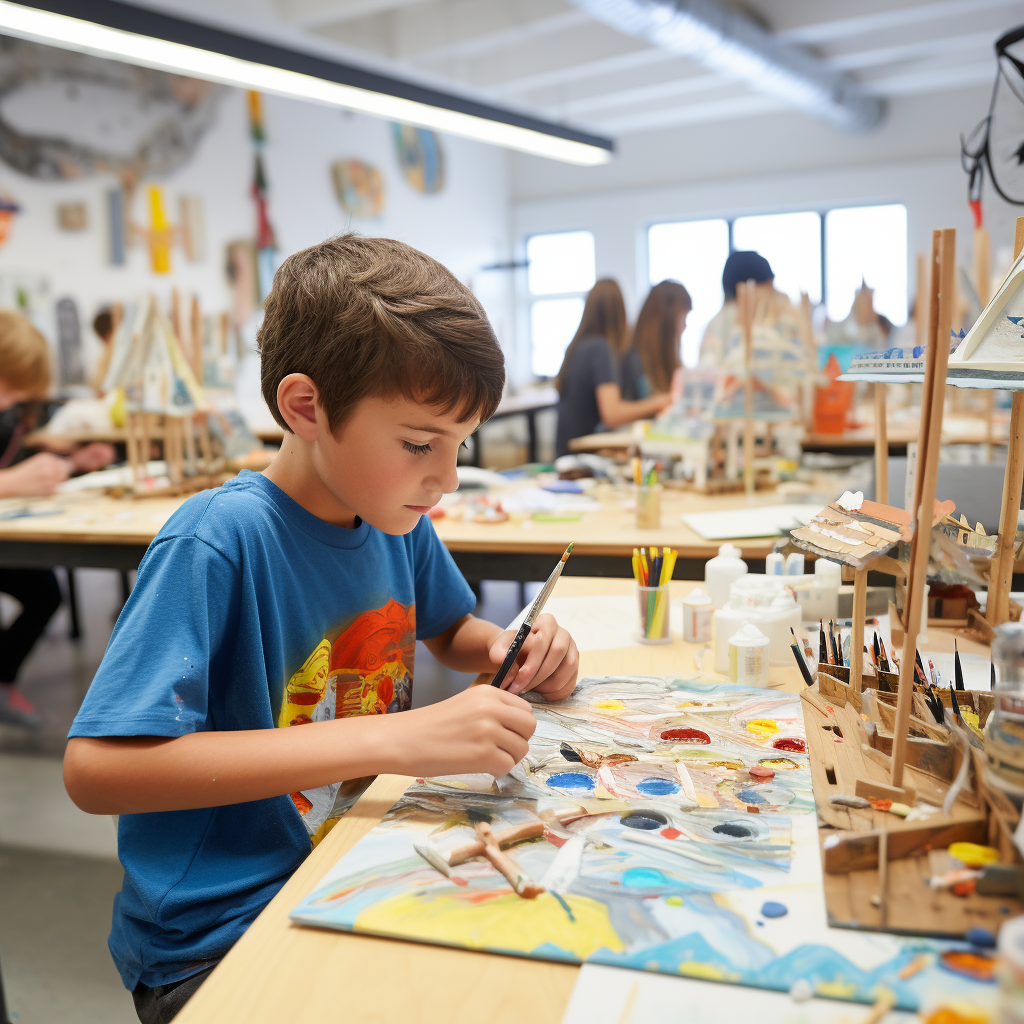Gifted Workshops: Essential Training for Teachers!
Grasping the intricacies of a gifted child's world is crucial for educators aiming to provide an optimal learning environment. Gifted children exhibit unique cognitive and emotional characteristics that set them apart from their age peers. Recognizing these traits is the first step toward fostering their exceptional abilities. Gifted workshops for teachers are designed to delve into the psychological and developmental aspects of giftedness, equipping educators with the knowledge to support advanced learners.
These workshops often cover topics such as asynchronous development, where a child's intellectual growth may surpass their emotional maturity, and how to manage the resulting challenges. Understanding the heightened sensitivities and intensities of gifted children can help teachers create a supportive and stimulating classroom environment. Additionally, recognizing the potential for underachievement or perfectionism is also vital, as these are common hurdles that gifted children may face.
By participating in gifted workshops for teachers, educators can learn to identify the signs of giftedness, differentiate instruction to meet varying needs, and encourage critical thinking and creativity in all students. For more information or to schedule a tour, email us at gifted@vanguardgiftedacademy.org, and take the first step in transforming your approach to teaching gifted learners.
Curriculum Design for Gifted Learners: Tailoring Instruction

Creating a curriculum that meets the needs of gifted learners involves a thoughtful approach to instructional design. It is not simply about accelerating content, but tailoring instruction to challenge and engage gifted students intellectually, creatively, and socially. Educators must consider depth and complexity, promoting a curriculum that goes beyond rote learning to develop higher-level thinking skills.
One effective strategy is the use of open-ended projects and inquiries that allow students to explore subjects in great depth. This encourages gifted learners to apply their knowledge in innovative ways and fosters an environment where they can grow beyond the standard curriculum. Another critical aspect is incorporating opportunities for gifted students to work at an advanced pace in subjects of interest, which can be facilitated through individual learning plans and compacting curricula to avoid repetition of material already mastered.
Differentiated instruction is essential in a mixed-ability classroom to ensure that gifted learners are not left unchallenged. This can be achieved through tiered assignments, which provide varying levels of difficulty in tasks, and flexible grouping, allowing students to work with peers who share similar abilities or interests. The goal is to create a learning experience that is responsive to the readiness levels, interests, and learning profiles of gifted children, enabling them to reach their full potential.
Strategies for Classroom Management in Gifted Education

Classroom management within the context of gifted education requires a unique set of strategies to harness the potential of high-ability learners. Gifted students often display characteristics such as intense curiosity, high energy, and a propensity for questioning norms, which can be both a boon and a challenge within the learning environment.
Creating a classroom culture that values inquiry and allows for autonomy is one approach to managing such dynamics. Encouraging self-directed learning and providing choices in assignments can help gifted students take ownership of their education and stay engaged. Moreover, setting clear expectations and consistent routines can help establish a structured yet flexible environment that fosters creativity without compromising discipline.
Another strategy involves implementing intellectual peer interactions, where students can collaborate on complex tasks, debate ideas, and provide one another with stimulating challenges. This helps manage the classroom by utilizing the students' own abilities to drive engagement and learning. Additionally, it is important to provide emotional support and teach coping strategies for perfectionism and frustration, which are common among gifted learners. By focusing on social-emotional learning, educators can help gifted students develop resilience and a growth mindset, which are crucial for effective classroom management.
Lastly, proactive communication with parents and caregivers about classroom expectations and student progress is vital. This partnership can ensure a consistent approach to managing the unique needs of gifted learners both at school and at home.
Assessment Techniques for Measuring Gifted Student Progress

Assessing the progress of gifted students necessitates a multi-faceted approach that takes into account the depth and complexity of their learning experiences. Traditional assessment methods may not always capture the full extent of a gifted learner's knowledge and skills. Therefore, educators must employ a variety of assessment techniques to measure progress accurately.
One effective method is the use of pre-assessments to determine what the student already knows before a unit begins. This allows for the customization of curriculum to ensure that the student is challenged and engaged. Following this, formative assessments throughout the learning process provide ongoing feedback, enabling adjustments to instruction and learning activities as necessary.
Performance-based assessments, such as portfolios, presentations, and research projects, are particularly valuable. They allow students to demonstrate their learning in a manner that reflects higher-order thinking skills and creativity. Additionally, these assessments can offer insights into a student's ability to apply their knowledge in real-world contexts.
Another approach is the use of peer assessments and self-assessments. These encourage reflection and critical thinking, as students evaluate their own work and the work of their classmates against established criteria. This not only supports the development of metacognitive skills but also promotes a sense of responsibility for their learning.
Lastly, it is important to recognize that gifted students may excel in areas beyond academics. Therefore, assessments should also consider personal growth, social development, and creative endeavors. By utilizing a comprehensive range of assessment techniques, educators can ensure a more complete and accurate understanding of the progress of gifted students.
Fostering Emotional Intelligence in Gifted Education

In the realm of gifted education, fostering emotional intelligence is as crucial as academic achievement. Gifted students often exhibit heightened sensitivity and may experience intense emotions. Educators must therefore prioritize the development of emotional intelligence (EQ) to prepare these students for the complex social and emotional challenges they may face.
To cultivate EQ in gifted learners, schools like Vanguard Gifted Academy integrate social-emotional learning (SEL) within their curriculum. This approach involves teaching students to recognize and manage their emotions, develop empathy for others, establish positive relationships, and make responsible decisions. These skills are essential for the personal and academic success of gifted students.
Tailored strategies such as role-playing exercises and group discussions help students understand and express their emotions constructively. It also aids them in recognizing and respecting the feelings of their peers, thereby enhancing their interpersonal skills. Additionally, encouraging reflection through journals and one-on-one conversations allows gifted students to process their emotions and develop self-awareness.
Moreover, providing opportunities for gifted students to take on leadership roles can be beneficial. Leadership experiences can teach them to navigate complex group dynamics and foster a sense of empathy and social responsibility. These experiences are integral to building a well-rounded emotional intelligence.
By implementing these methodologies, educators can ensure that gifted students are equipped not only with cognitive competencies but also with the emotional tools necessary to thrive in diverse environments. This holistic approach to education is what sets apart institutions focused on the comprehensive development of gifted children.
Incorporating Technology and Innovation in Gifted Workshops
As we delve into the digital age, incorporating technology and innovation in gifted workshops is pivotal for enhancing the educational experience of gifted students. These workshops offer a myriad of opportunities for educators to integrate cutting-edge tools and methodologies that cater to the advanced learning styles of gifted individuals.
One key aspect is the use of educational software that promotes complex problem-solving and critical thinking. Interactive platforms that allow for individualized learning paths can be particularly effective. They enable students to progress at their own pace, while also challenging them with advanced concepts and applications.
Robotics and coding workshops stimulate logical reasoning and creativity, providing a hands-on approach to learning. Similarly, the introduction of virtual reality (VR) and augmented reality (AR) in classrooms can transform traditional lessons into immersive experiences that captivate the gifted learner’s imagination and facilitate deep learning.
Furthermore, technology fosters collaboration among students, whether they're in the same room or across continents. Online forums and project management tools help students work together on research projects, while also building their digital communication skills.
Ensuring that teachers are proficient in these technologies is vital. Gifted workshops for teachers must, therefore, include professional development sessions focused on the latest educational technologies and innovative teaching methods. This empowers educators to effectively guide their students through an enriched learning journey.
At Vanguard Gifted Academy, we are committed to providing such state-of-the-art educational experiences for both students and educators. For more information or to schedule a tour, email us at gifted@vanguardgiftedacademy.org.
